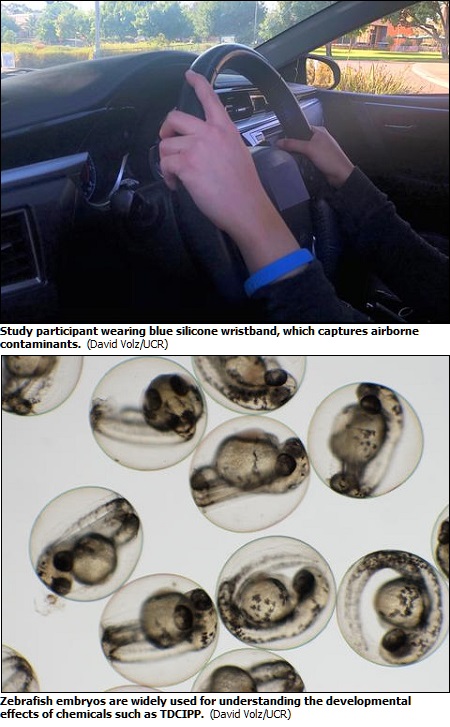
|
|

|
|
| April 20, 2024 |
|
Study: Your car seat may be a source of toxic pollution 
RIVERSIDE – (INT) – The longer your commute, the more you’re exposed to a chemical flame retardant that is a known carcinogen.
While much research on automobile pollution focuses on external air pollutants entering vehicle interiors, a study a UC Riverside found that chemicals emanating from inside your car could also be cause for concern. Some scientists assumed that humans stopped being exposed to the chemical, called TDCIPP or chlorinated tris, after it was placed on California’s Proposition 65 list in 2013. However, it is still widely used in automobile seat foam. The study shows that not only is your car a source of TDCIPP exposure, but that less than a week of commuting results in elevated exposure to it. UC Riverside undergraduates made for excellent study subjects, as a majority of them have a daily commute. Participants included around 90 students, each of whom had commute times that varied from less than 15 minutes to more than two hours round trip. All of them were given silicone wristbands to wear continuously for five days. The molecular structure of silicone makes it ideal for capturing airborne contaminants. Since TDCIPP isn’t chemically bound to the foam, Aalekyha Reddam, a graduate student in the Volz laboratory, said it gets forced out over time and ends up in dust that gets inhaled. Story Date: February 18, 2020
|